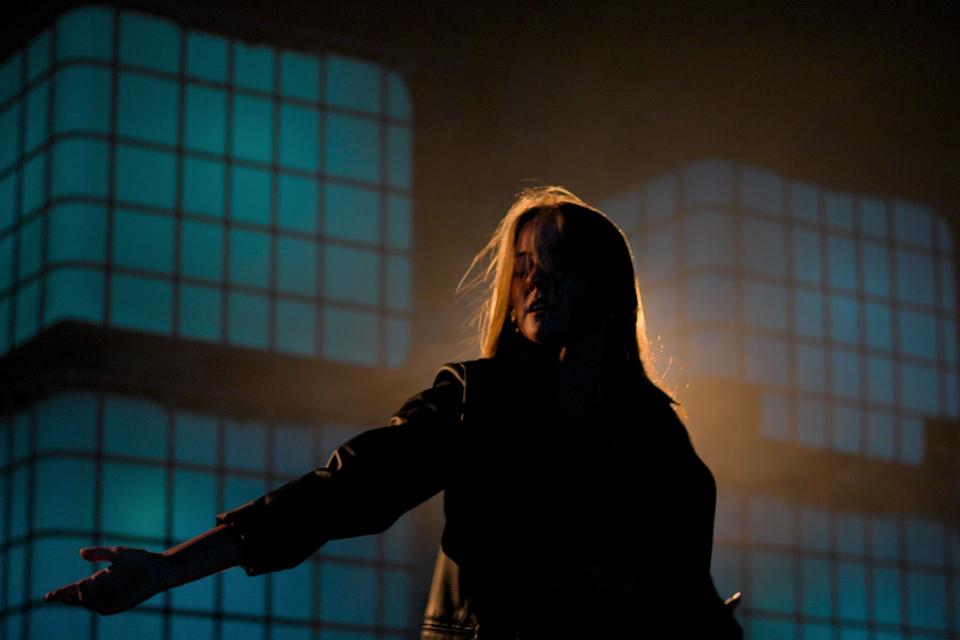The Dancing for the Devil Filmmakers Want to Clear Up One Thing About the Wilking Sisters
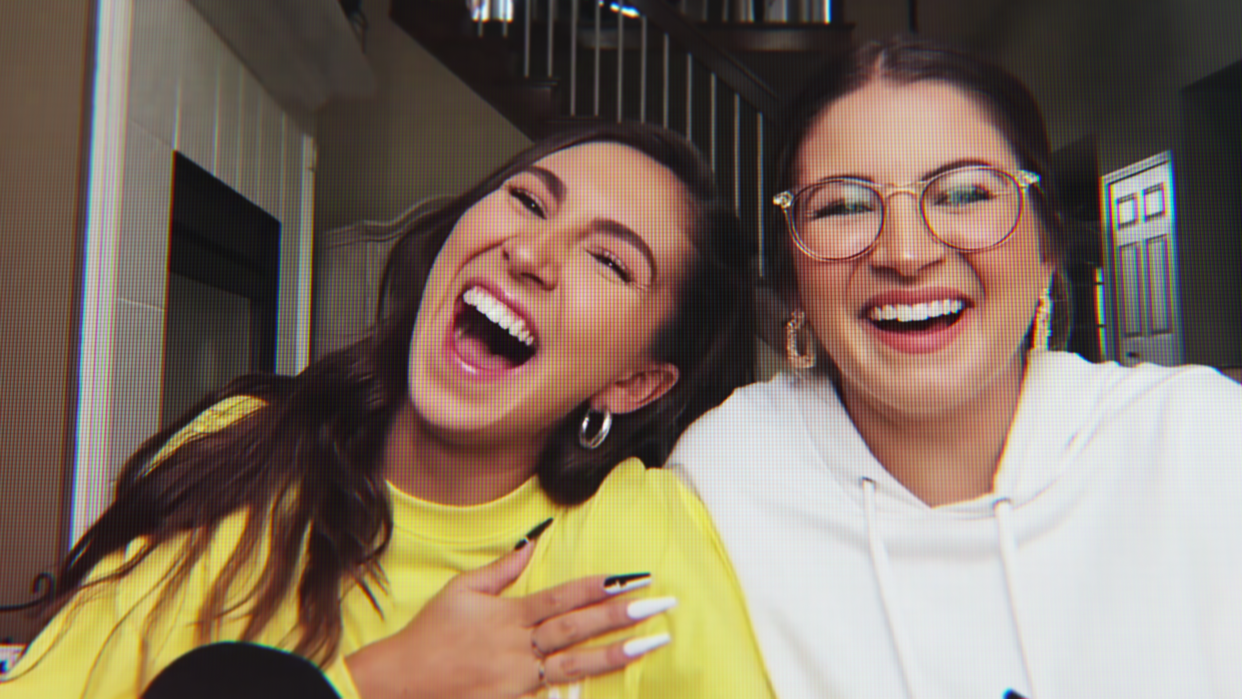
Courtesy of Netflix
When the filmmakers behind Dancing for the Devil: The 7M TikTok Cult first learned of an alleged cult disrupting the LA dance community, the most important thing they had to do was establish trust with the family at the forefront of exposing its leader.
When the Wilkings family went live on Instagram in a desperate attempt to reestablish contact with its estranged daughter Miranda Wilking (now Miranda Derrick) in February 2022, many of the TikTok dancer’s fans accused the family of clout chasing. Despite their concerns that Miranda had been brainwashed by Shekinah Church pastor Robert Shinn, some thought Kelly and Dean Wilking were the ones attempting to exert control over their “cash cow.” Meanwhile, Miranda’s younger sister, Melanie, was believed to be jealous of her sibling’s solo success and eager to maintain “The Wilking Sisters” social media brand.
After all, many of the dancers associated with Shinn’s talent management company 7M seemed to be living their dreams in stunning Hollywood homes, popping up on red carpets and performing on The Ellen DeGeneres Show. Most recently, one alleged member was even featured in August Moon, the fictional boy band from Anne Hathaway’s new romance flick, The Idea of You.
Even those who immediately believed the Wilking family’s allegations might be surprised to learn they were reluctant to appear in a major Netflix exposé. Considering their first viral plea led to a wave of press and connected them to other parents who’d lost contact with 7M dancers, their prominence in the documentary series felt inevitable. According to executive producer Jessica Acevedo, this wasn't really the case.
“If anything, establishing that relationship with [the Wilkings] and that comfort for them to even participate in the documentary [took] the longest,” she told Glamour over Zoom. “They were so afraid of just losing Miranda completely that I do want to just share that it was not an easy decision for them to go live. And it was not an easy decision for them to participate in the documentary.”
Despite what anyone might think, Acevedo says their initial video was “never about attention,” but a “last resort” that helped numerous victims break free of Shinn’s control. During filming, four dancers left the church and came forward with their experiences, as did longtime Shekinah member Priscylla Lee, whose own sister Melanie had escaped a decade earlier.
Now, Acevedo and director Derek Doneen hope their three-part documentary can finally do the same for Miranda Derrick. Below, the filmmakers discuss piecing together this decades-long story, what they hope viewers learn from Dancing for the Devil, and what comes next.
Now Streaming
It tells the story of dancers who joined a management company said to be a cult.
Glamour: I would love to just jump right into how both of you got involved in this particular project, and why?
Jessica Acevedo: So the story was brought to me by Tim Milgram, who owns a dance studio and is a director and fellow producer I’d worked with in the past. He was telling me about how 7M got started and the buzz around the dance community, specifically with the management company, and how one of the families, the Wilkings, went live on Instagram in the hopes of reconnecting with their daughters. So right away, I went and watched the Instagram Live, and, like most people, I was really like, “What the heck is going on here?”
And so later that evening, Tim got me in contact with the Wilkings, and we ended up talking for quite a few hours. They were catching me up to that point of the Live—like what had been going on, the struggles that they had faced, and how they felt like the Instagram Live was their last resort, if you will. So ultimately, that kind of kick-started us really diving deeper into this. These sleuth accounts started to come out with more and more information about it after the Live. So we were made aware that this had gotten much darker and deeper than we could have ever imagined.
When were you made aware of the Live? Was it right when it came out or a while after?
Acevedo: It was around February 2022 when we first started. So we started to dive in, and then a few months later, we set it up with Netflix, and Netflix wanted to partner us with a premium doc company. And that’s when we met Derek and the Dirty Robber team. And immediately there was just a connection, like Derek got the vision of what we wanted. You know, with a project like this, it’s so sensitive when you're establishing relationships with people and the trust that has to be earned. And that's something that Derek took very seriously, which made us feel very comfortable.
What interested you in the project, Derek?
Derek Doneen: I think, from my perspective, the thing that’s really exciting as a storyteller is the ability to immerse in a story that’s still unfolding, especially in the cult space, where I think generally, much of the time it’s a retroactive look back at the cult leader—the monster—and the victims and their experience. Obviously, that’s a part of our show and it’s a part of what we needed to do to create context and understand their lived experience, but maybe we can look at this story that’s familiar to audiences from a fresh perspective: From the point of view of the families who are desperately trying to get their loved ones out. And from dancers and ex members, as they get out of the cult and try to rehabilitate, try to deprogram, try to reconnect with their families, and sort of figure out who they are as people, where they fit in the world, and where they’re trying to go.
I think the expectation that I had coming into this was that once you’re out, you’re just so happy to have your freedom and sort of anxious to get right back into your life. It’s worth noting, just as an aside for a second, that when we set up the project, the dancers were still in [the church]. Priscylla Lee was still in, so their departures all happened during the course of our production, and, ultimately, that became part of a big part of the show.
But the thing that I certainly learned was that once you’re out, you’re still coping with a lot of the teachings and the programming that has been put into your brain. [Getting out] is just the first step of a much longer journey of recovery. And that was something that we really wanted to try to capture in real time as it was happening. But it all started with trust building, and taking the time— when we didn't have cameras there, when we weren't shooting—to really get to know the subjects to build that trust, and to make sure they were comfortable, and that they were at a place mentally where it’d be safe for them, that we could create that safe space and that environment for them to feel comfortable enough to be as vulnerable as you ultimately end up seeing them being on camera.
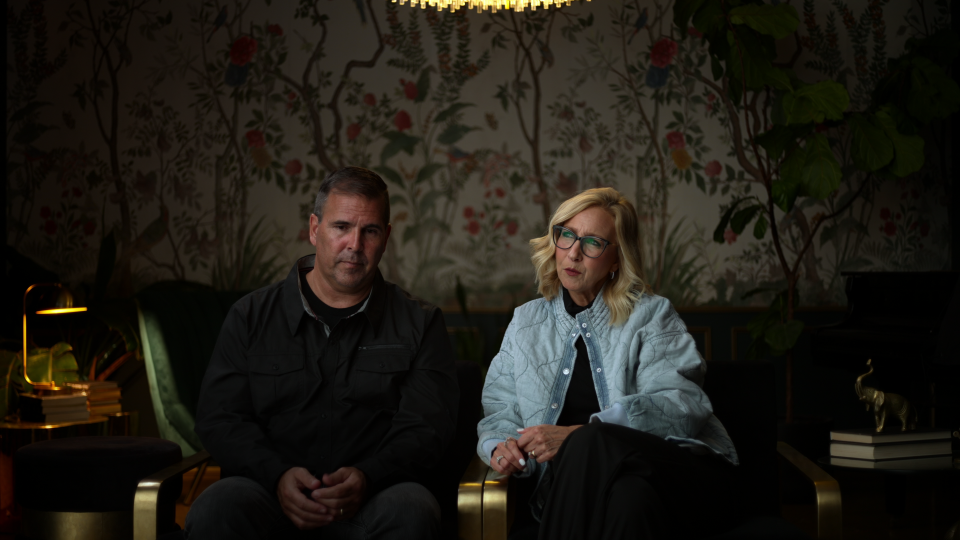
It was pretty jarring to go back and check Miranda and Melanie’s social media feeds and see so many comments from people who didn't know the deeper story. Going back to the Live, a lot of people saw the Wilkings as disrespecting their daughter’s boundaries. On recent posts, Miranda's followers are so happy whenever she posts videos with her family. It feels very strange to get this glimpse before the whole world sees those videos through a different light. Like you said, this is all unfolding in real time.
Doneen: It's very different if you look at public perception for the Wilking family versus the Raiano family. The Wilkings are much more known and, as you mentioned, a lot of people are flooding their comments and trying to weigh in on things. They think they have an idea of what this family is going through.
With Nick and his parents…you know, his mom just made a post and she doesn’t have hundreds of followers. People aren’t tracking what she's saying. But she just made a post longing for her son. She’s still very much in this. This is not a story that has been resolved for either of the families, though there is a stark contrast as to the public perception.
I think—speculation, of course—but a lot of that is controlled by Robert and what he wants the world to think, and it probably has something to do with the sort of favor that he gives various people in the group, by allowing them to have contact or not with their families, and what level of contact they’re allowed to have. But I think a lot of that, sadly, is preemptive, knowing that this documentary is coming out and wanting to paint a certain image publicly. Again, that’s speculation, but that is certainly how it feels.
And that’s not to say that those interactions aren’t genuine. It’s not to say that there’s not shared love. Of course there is. Of course the family loves Miranda. And of course she loves her parents. I hope that that’s deeply felt in the documentary. It's certainly what we wanted to show because it’s the experience that we had and making it. Absolutely. But in terms of, you know, the contact that she’s having and the image that she's putting out, it’s certainly not what we know to be true, and what’s gonna be reflected in the documentary.
Obviously, the Wilkings did the live video and wanted the attention, but how did you establish your relationship with Melanie Lee [a former Shekinah member who escaped the church in 2011]?
Acevedo: So, I should just disclose that the Wilkings going live was to try…again, they were at this breaking point of trying to just do everything that they could to try to bring attention to the organization in the hopes that other people…exactly kind of what happened, where other people started to come forward about their experiences. It was never about attention.
As for everyone else—because as you can imagine, this is such a vulnerable, traumatic experience—people aren’t running to participate in something that’s going to expose something that’s very difficult to process. As these sleuth accounts started to come up after the Live, we spoke to quite a few people and victims of Robert that are not participating in the documentary. It’s important for us to also share that we’re only showing some of the experiences. And it’s not meant to discount anyone else’s trauma or experience within the church.
Derek always says trust has to be earned, and we really, really wanted to make sure that everyone felt comfortable and that we earned that trust. And that took months. But we were connected [to Melanie Lee] through social media and became familiar with her story and so many other stories. So it kind of kick-started that, and us really diving deeper into what we were calling pre-dancer Shekinah, which is actually kind of Shekinah 1.0.
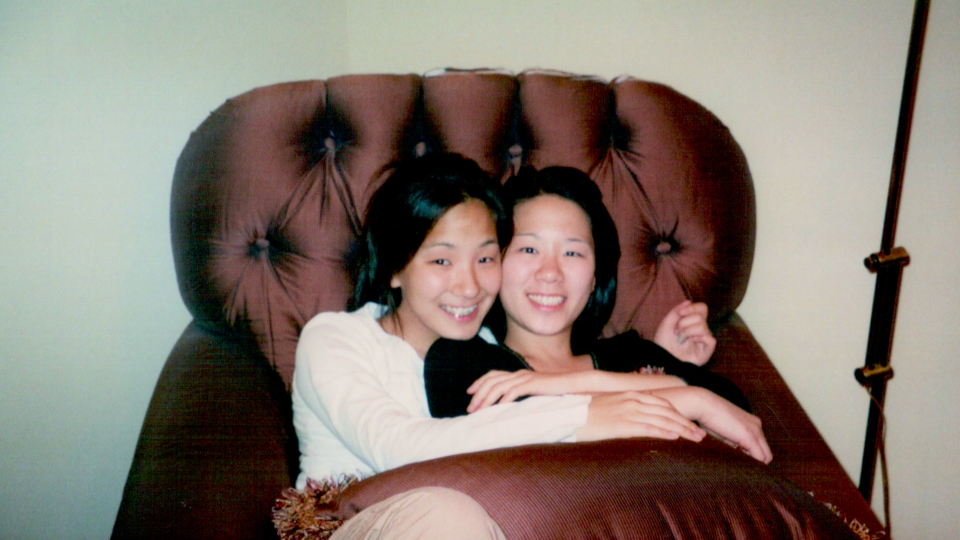
You mentioned that Melanie's sister, Priscylla Lee, left the church during production, but it didn’t seem to me like she knew the dancers. Were the original members kept separate from the dancers?
Acevedo: Not fully, but to some extent, yes. From what we’ve learned from people and the stories that we’ve heard is that Bible studies, women's group, church…they’re all in [the church]. But like it is for the dancers and like it is for the other members, I think it’s meant to feel divided, and they’re not supposed to be communicating with one another even when they’re living in the same house. We’ve heard stories of people not being able to communicate when living under the same house. But yeah, they’re all living amongst each other, but there is a bit of separation, from what we’ve heard.
Was the initial conversation between Priscylla and Melanie Lee their first reunion or had they already established contact?
Doneen: They had talked before that shoot. They had not had any kind of in-depth conversation, period, about their experience or about anything that had happened [to them]. But from my understanding, they had a few phone calls and may have seen each other. But we try to be as accurate as possible. Always. And that conversation was an accurate reflection of what it felt like at the beginning. It was very awkward. And it wasn't until that scene that you see in episode three, which really was the first time that they started to break through some of those barriers and break that ice in terms of their willingness to revisit the past and to really kind of try to understand each other’s perspective.

While the dancers made everything viral, it does feel like there are people involved who are almost more vulnerable because they don't have as many followers or interest in their stories. Was that something you were thinking about?
Acevedo: That was a very important for us to make sure we were showing all sides of this—as many sides of the story as possible. We did think about that, because there is so much attention around the dancers, but there’s so many other people that were affected by this and people that were speaking out publicly. So it was important for us to tell their stories, and those experiences in the much larger story, because they all are intertwined.
Doneen: I’ll just add really quick that once we knew that Priscylla was going to be on board, it was a clear choice for us to try and parallel the story of two [pairs of] sisters. It creates a sense of urgency, I think, for the Wilking family, right? That if they can’t get Miranda out, we see what the future looks like. We see what the relationship rebuilding is going to look like for Melanie and Miranda. We see how hard it’s going to be for her to have those real conversations with her parents.
For example, we have that conversation between Priscylla and her father. Granted, their life experience is very different up until that point, but we kind of show the challenges that are baked in, and that, I think, creates a sense of tension and urgency around getting her out before it gets any deeper.
The scene where Priscylla and Melanie Lee’s friends track down and serve Robert court documents also escalates the situation. Was there ever a point where you were concerned for the safety of your crew, or the subjects of the documentary?
Doneen: Well, it’s something that Priscylla was intent on doing herself. That was not something that we asked her to do or pushed her to do, that was something that she was going to do whether we were there or not.
So if she and her sister are going to come together and sort of face their abuser like that and sort of take back their power, of course we had to be there. We wanted to be there. But safety is always at the forefront of our conversation and our thought process. Certainly, we wouldn't move forward with a shoot if we felt that there was an active danger that we were going to be putting our crew in, or our subjects in. But again, that was something specifically that she wanted to do. And if she was going to do it, we were going to be there for it.
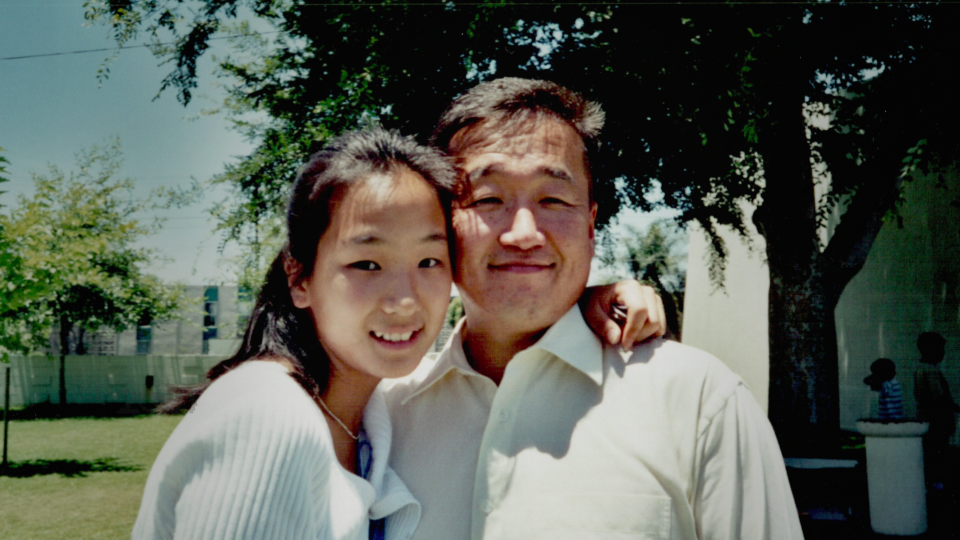
Once the Wilkings reestablished contact with Miranda, they struggle with how much to push back against her insistence that they don’t talk about 7M during their visits. How do you think those relationships might shift with the documentary coming out?
Acevedo: Robert, the church, the leaders—they all know that there’s a documentary. There was outreach that was done on our part to Robert early on, as well as other members leading into this.
Like Derek said, it’s about making sure that we are protecting our subjects, making sure that our crew is safe, that we’re safe. They are aware that it’s coming out, so I don't think it’s going to take anyone by surprise.
Doneen: Correct. They know it’s coming and they know that their parents participated. And I also know from talking to the families that they only did it because it was the last sort of grasp…it was done out of love and desperation. And so my hope is that they see that. We don't even know if they’re gonna watch it—if Robert will let them watch it, or if they'll watch it on their own. I have no concept as to what exposure they’re going to have [to the documentary] and what they’re going to think. But my hope is that they watch it. And my hope is that they just see that this is coming from a place of love, and that the humanity sort of breaks through whatever else might be clouding their ability to make a rational decision when it comes to their family.
What do you hope viewers take from the documentary?
Acevedo: My hope is that people will continue to dig into the story and ask questions—some of the questions that you’re even asking—in hopes to reunite these families. To bring justice to people, while also maybe even having a little more patience and understanding of where people are. I think we’re really quick to want to label people and put them in these little boxes and categories when it’s not a one size fits all. Let’s have some grace, let’s have some patience and be understanding.
Doneen: Yeah, thanks, Jess. And echoing what you’re saying, first and foremost, our hope is that the families find the peace they’re looking for. I know that many haven’t, so my hope is that this can help. That Miranda and Nick can see that their parents did this out of love and desperation and just such a strong desire to try torebuild what they once had.
Beyond that, I hope that the strength and courage of these victims and these families in coming forward inspires people who might find themselves in a similar situation—[people who] could be in a highly controlled group setting like this.
It could also just be, you know, potentially in a domestic partnership, right? Somebody who’s trapped in a situation that they feel they can’t leave. It took incredible strength for everybody in the show, not only to find the courage to sort of extricate themselves from Robert and from that situation—especially when he has his claws in their finances and really every part of their lives—but then to go and sort of dig deeper and find the strength to tell that story for millions of people. Again, my hope is that people who maybe need that little push or need help finding the strength and courage to do what they need to do in their own lives can find it in the strength of the subjects who were brave enough to come forward and share their stories.
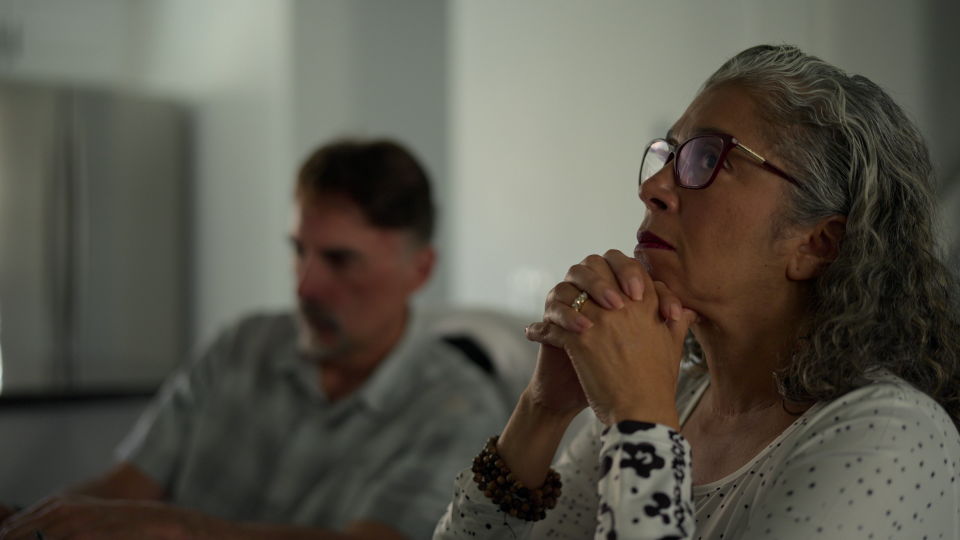
By the time the docuseries ends, no criminal charges were filed and the lawsuit isn’t set to go to trial until 2025. Do you see yourself continuing to track this story or are you ready to put it behind you?
Doneen: Let’s just say we’re not done with our relationships with the subjects. We have conversations with them day in and day out, just to make sure that they’re continuing to feel comfortable in advance of the release, to get updates as to where they are emotionally, to get updates on the case, the lawsuit, where they are in their healing journey, where they are in contact with their kids, if they’ve made any strides there—that kind of thing. So those relationships are, I think and hope, lifelong, and certainly not going anywhere anytime soon.
In regards to whether that will turn into additional production, I mean, of course that remains to be seen. My hope is that we can actually have a serious conversation about it because something has happened—that there has been big movement that would make it worth having that conversation. Because ultimately, that would mean potentially good things are happening for the subjects, and that’s what I care most about. We haven’t had any conversations beyond that, it’s just really thinking about them and our hope is that this does help move the needle and then maybe that opens up another conversation. But for now, it’s just focused on them.
You can watch Dancing for the Devil: The 7M TikTok Cult on Netflix. Emily Tannenbaum is an entertainment editor, critic, and screenwriter living in Los Angeles. You can follow her on Instagram.
Originally Appeared on Glamour

